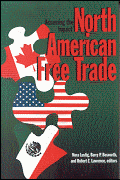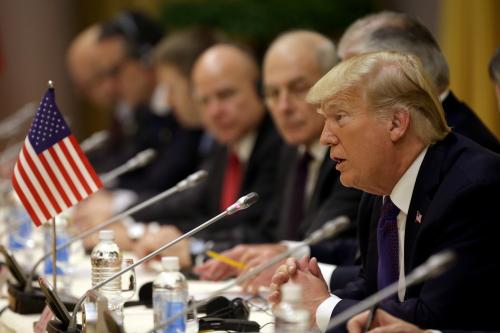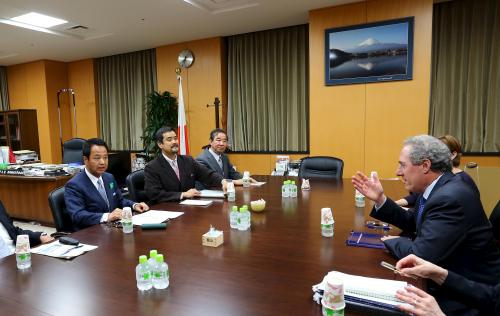President Trump’s recent presidential memorandum marking the exit of the United States from the Trans-Pacific Partnership (TPP) multilateral trade agreement augurs a brave new world on the international trade front. Trump’s publicly-stated desire to renegotiate the North American Fair Trade Agreement is another sign that his administration intends to shake up the status quo on trade in a dramatic way. So too is the heightened role that incoming Secretary of Commerce Wilbur Ross is expected to play in this area, which typically has been led by the United States Trade Representative.
The Trump administration approach also will be aimed at structuring bilateral agreements rather than multilateral ones such as the TPP. A range of technology-specific concerns will be affected by virtually every new negotiation or renegotiation takes place. However, there has been little discussion to date of what principles might help guide U.S. negotiations where digital economy matters are critical. Given the President’s “America First” governing philosophy, our trade negotiators will be encouraged to advance hard-edged proposals that can be heralded as having helped achieve this vision. Below are a few proposals that deserve more widespread discussion and consensus—particularly between the Trump administration and the private sector that will be involved in creating economic and employment growth.
Market access commitments on investment and cross-border services, including those delivered digitally, should be at the top of any trade wish list. The TPP contained these strong commitments. In its absence, the U.S. will need to assure American service providers that they have a legal basis for offering their services in other countries or regions. These services include technology-related support such as cloud computing and professional services such as consulting and advertising.
Countries also should be barred from making market access contingent on forced transfers of technology. Such a prohibition on requiring companies to transfer their technology, production processes, or other proprietary information was part of the TPP. It will be important to have a comparable condition inserted in any Trump administration trade deal.
TPP contained technology choice provisions that would have benefited U.S. companies. Without this agreement, it still will be important for American companies to utilize abroad the technologies that best suit their needs. This means a freedom to choose among wireless transmission standards such as Wi-Fi and LTE. U.S. companies should not be required to purchase and utilize local technology. A version of this mandate seems to be another critical term that will need to be crafted anew in future trade agreements.
This same safeguard against local protectionism should extend to suppliers of equipment for telecommunications network competition, including landing submarine cables and voice and data networks. Unless this is part of a trade agreement, U.S. companies may be required to limit their choices in supply chains in an economically inefficient way.
Another area that warrants an assertive U.S. negotiating stance is source code and proprietary algorithms. Absent protection for such software, other countries will be able to share them with national-champion competitors or state-owned enterprises. Additionally, U.S. companies will need to have access to source code of other countries to satisfy local health, safety or legitimate regulatory goals. And since trade secrets are an important aspect of source code and algorithm protection, the U.S. should require trade agreement parties to establish criminal procedures and penalties for trade secret theft, including by cyber systems.
Since the provisions above already had been negotiated for the TPP, they should be used as a starting point for any new trade agreement. The U.S. withdrawal from the TPP need not mark the abandonment of principles that will continue to serve our nation well, even with a new governing approach that emphasizes better outcomes for American companies in a globalized economy.
The Brookings Institution is committed to quality, independence, and impact.
We are supported by a diverse array of funders. In line with our values and policies, each Brookings publication represents the sole views of its author(s).









Commentary
The road ahead for technology-related trade agreement terms
February 2, 2017